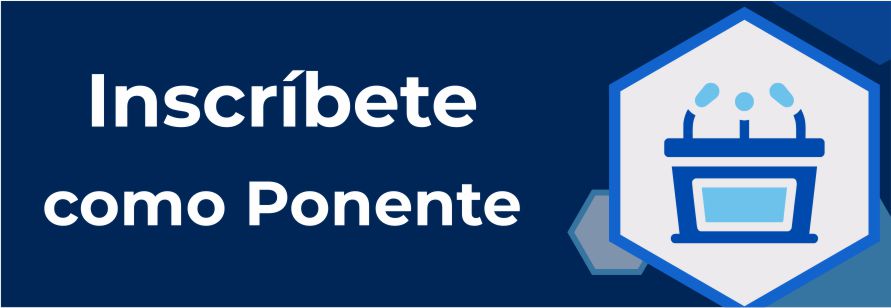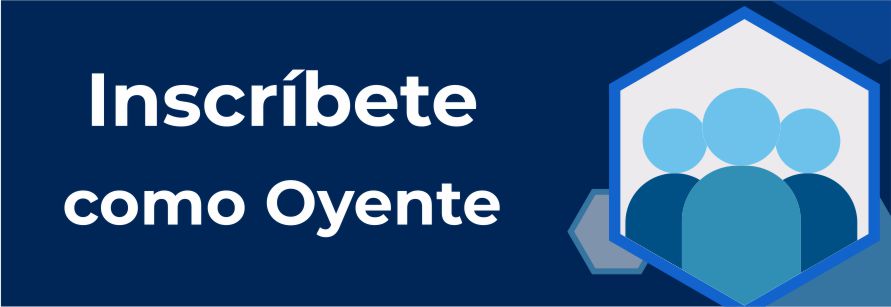Gamificación en la Educación como Tendencia en la Práctica de la Labor Docente
Resumen
La gamificación es una tecnología educativa acorde a las necesidades motivacionales de la actual generación de estudiantes. La gamificación no requiere dispositivos tecnológicos sofisticados para su aplicación. La formación del profesorado y aplicación competente de la gamificación es necesaria para romper el molde de los convencionalismos educativos. Desde esta perspectiva el objetivo en este ensayo de investigación educativa es identificar el estado del arte de los beneficios y falencias de la conceptualización de la gamificación, y la influencia de la formación del profesorado en la aplicación práctica en el proceso de enseñanza - aprendizaje en bases de datos científicas. La metodología se ha estructurado como una revisión sistemática. El estudio se realiza con bases de datos científicas como ERIC como referente en las ciencias sociales. Se establecen algunos criterios de selección como por ejemplo la correcta aplicación del concepto gamificación. Como resultado principal del estudio se identificó la falta de conocimiento en la estructura de la gamificación. Además de la asociación no adecuada de la gamificación con otras metodologías que asocian a los juegos pero que no contienen los preceptos establecidos por los principales autores de la gamificación. El aporte del presente ensayo a través de la revisión sistemática es determinar el estado actual y la dirección que debe emprender la formación del profesorado para el desarrollo profesional en cuanto a las competencias en gamificación para la educación. Este ensayo pretende mejorar la calidad de información que disponen el colectivo educativo para integrar efectivamente los procesos metodológicos de la labor docente en la práctica.
Descargas
Citas
Aljraiwi, S. (2019). Effectiveness of Gamification of Web-Based Learning in Improving Academic Achievement and Creative Thinking among Primary School Students. International Journal of Education and Practice, 7(3), 242-257. https://doi.org/10.18488/journal.61.2019.73.242.257
Balladares-Burgos, J., & Valverde-Berrocoso, J. (2022). El modelo tecnopedagógico TPACK y su incidencia en la formación docente: Una revisión de la literatura. Revista Caribeña de Investigación Educativa (RECIE), 6(1), 63-72. https://doi.org/10.32541/recie.2022.v6i1.pp63-72
Bouchrika, I., Harrati, N., Wanick, V., & Wills, G. (2021). Exploring the Impact of Gamification on Student Engagement and Involvement with E-Learning Systems. Interactive Learning Environments, 29(8), 1244-1257. https://doi.org/10.1080/10494820.2019.1623267
Bovermann, K., & Bastiaens, T. (2019). How Gamification Can Foster Motivation and Collaboration in Blended Learning: A Mixed Methods Case Study. Journal of Interactive Learning Research, 30(3), 275-300. https://www.learntechlib.org/primary/p/184766/
Carrión, E., Pérez, M., & Giménez, E. (2021). ICT and Gamification Experiences with CLIL Methodology as Innovative Resources for the Development of Competencies in Compulsory Secondary Education. Digital Education Review, 39. https://doi.org/10.1344/der.2021.39.238-256
Castañeda, M. A., Guerra, A. M., & Ferro, R. (2018). Analysis on the Gamification and Implementation of Leap Motion Controller in the I.E.D. Técnico Industrial de Tocancipá. Interactive Technology and Smart Education, 15(2), 155-164. https://doi.org/10.1108/ITSE-12-2017-0069
Curby, A. (2019). Using Gamification Strategies to Cultivate and Measure Professional Educator Dispositions. International Journal of Game-Based Learning, 9(1), 15-29.
https://doi.org/10.4018/IJGBL.2019010102
Davis, K., Sridharan, H., Koepke, L., Singh, S., & Boiko, R. (2018). Learning and Engagement in a Gamified Course: Investigating the Effects of Student Characteristics. Journal of Computer Assisted Learning, 34(5), 492-503. https://doi.org/10.1111/jcal.12254
Emel’yanenko, V. D., Vetoshko, A. N., Malinnikov, S. G., Malashenko, I. V., & Vetoshko, L. I. (2016). Man’s Values and Ideologies as a Basis of Gamification. International Journal of Environmental and Science Education, 11(18), 12576-12592.
https://eric.ed.gov/?q=Gamification+educational+Technology+&ff1=dtySince_2013&pg=3&id=EJ1124629
Fernandez-Rio, J., de las Heras, E., González, T., Trillo, V., & Palomares, J. (2020). Gamification and Physical Education. Viability and Preliminary Views from Students and Teachers. Physical Education and Sport Pedagogy, 25(5), 509-524.
Fernandez-Rio, J., Zumajo-Flores, M., & Flores-Aguilar, G. (2022). Motivation, Basic Psychological Needs and Intention to Be Physically Active after a Gamified Intervention Programme. European Physical Education Review, 28(2), 432-445.
https://doi.org/10.1177/1356336X211052883
Funa, A. A., Gabay, R. a. E., & Ricafort, J. D. (2021). Gamification in Genetics: Effects of Gamified Instructional Materials on the STEM Students’ Intrinsic Motivation. En Online Submission (Vol. 10, Número 4, pp. 462-473).
https://eric.ed.gov/?q=Gamification+Teacher+Education&id=ED618262
Gil-Quintana, J., & Prieto-Jurado, E. (2019). Juego y gamificación: Innovación educativa en una sociedad en continuo cambio. Ensayos Pedagógicos, 14(1), Art. 1.
https://doi.org/10.15359/rep.14-1.5
Gómez-Contreras, J. L. (2020). Gamificación en contextos educativos: Analisis de aplicación en un programa de contaduría pública a distancia. Universidad & Empresa, 22(38), Art. 38. https://doi.org/10.12804/revistas.urosario.edu.co/empresa/a.6939
González-Fernández, A., Revuelta-Domínguez, F.-I., & Fernández-Sánchez, M. R. (2022). Models of Instructional Design in Gamification: A Systematic Review of the Literature. Education Sciences, 12. https://doi.org/10.3390/educsci12010044
Hudiburg, M. L. (2016). Motivation and Learning in an Online Collaborative Project Using Gamification. En ProQuest LLC. ProQuest LLC.
Indriasari, T. D., Luxton-Reilly, A., & Denny, P. (2020). Gamification of Student Peer Review in Education: A Systematic Literature Review. Education and Information Technologies, 25(6), 5205-5234. https://doi.org/10.1007/s10639-020-10228-x
Kalogiannakis, M., Papadakis, S., & Zourmpakis, A.-I. (2021). Gamification in Science Education. A Systematic Review of the Literature. Education Sciences, 11(22), 1-36.
https://doi.org/10.3390/educsci11010022
Khakpour, A., & Colomo-Palacios, R. (2021). Convergence of Gamification and Machine Learning: A Systematic Literature Review. Technology, Knowledge and Learning, 26(3), 597-636. https://doi.org/10.1007/s10758-020-09456-4
Levitt, R., & Piro, J. (2014). Game-Changer: Operationalizing the Common Core Using WebQuests and «Gamification» in Teacher Education. International Journal of Web-Based Learning and Teaching Technologies, 9(3), 53-71.
Li, X., & Chu, S. K. W. (2021). Exploring the Effects of Gamification Pedagogy on Children’s Reading: A Mixed-Method Study on Academic Performance, Reading-Related Mentality and Behaviors, and Sustainability. British Journal of Educational Technology, 52(1), 160-178. https://doi.org/10.1111/bjet.13057
López Carrillo, D., Calonge García, A., Rodríguez Laguna, T., Ros Magán, G., & Lebrón Moreno, J. A. (2019). Using Gamification in a Teaching Innovation Project at the University of Alcalá: A New Approach to Experimental Science Practices. Electronic Journal of E-Learning, 17(2), 93-106. https://eric.ed.gov/?q=Using+Gamification+in+a+Teaching+Innovation+Project+at+the+University+of+Alcal%c3%a1%3a+A+New+Approach+to+Experimental+Science+Practices&id=EJ1220168
López, P., Rodrigues-Silva, J., & Alsina, Á. (2021). Brazilian and Spanish Mathematics Teachers’ Predispositions towards Gamification in STEAM Education. Education Sciences, 11.
Marczewski, A. (2018). Even Ninja Monkeys Like to Play. Unicorn Edition.
Martínez Paz, D., & Toscano Menocal, A. (2021). La gamificación para la formación del profesional en ciencias de la información mediante las tecnologías de la información y la comunicación. Conrado, 17(81), Art. 81.
http://scielo.sld.cu/scielo.php?script=sci_arttext&pid=S1990-86442021000400007
Martí-Parreño, J., Galbis-Córdova, A., & Currás-Pérez, R. (2021). Teachers’ Beliefs about Gamification and Competencies Development: A Concept Mapping Approach. Innovations in Education and Teaching International, 58(1), 84-94.
McFarland, J. (2020). Leveling Up for the Teacher-Practitioner: Design and Implementation of a Gamified Application. Schools: Studies in Education, 17(1), 115-135.
https://doi.org/10.1086/708359
Opris, E. T., Bálint-Svella, É., & Zsoldos-Marchis, I. (2021). Prospective Preschool and Primary School Teachers’ Knowledge and Opinion about Gamification. Acta Didactica Napocensia, 14(1), 104-114.
Palová, D., & Vejacka, M. (2022). Implementation of Gamification Principles into Higher Education. European Journal of Educational Research, 11(2), 763-779.
Pektas, M., & Kepceoglu, I. (2019). What Do Prospective Teachers Think about Educational Gamification? Science Education International, 30(1), 65-74.
Petticrew, M., & Roberts, H. (2006). Systematic Reviews in the Social Sciences: A Practical Guide. Blackwell Publishing.
Pham, L. L. N., Nguyen, H. T., & Le, V. T. K. (2021). Triggering Students’ Learning Autonomy Using the Combination of M-Learning and Gamification: A Case Study at Nguyen Tat Thanh University. Teaching English with Technology, 21(2), 66-91.
https://eric.ed.gov/?q=Gamification+Educational+Technology&pg=2&id=EJ1293856
Pujolà, J.-T. (2021). Gamification: Motivating Language Learning with Gameful Elements. En Innovative language pedagogy report (pp. 109-114). Research-publishing.
https://eric.ed.gov/?q=Gamification+Educational+Technology&id=ED614098
Rodríguez-Martínez, B. (2021). La Gamificación como Predictor de la Integración en la Enseñanza. Revista Docentes 2.0, 11(2), Art. 2. https://doi.org/10.37843/rted.v11i2.253
Sakai, K., & Shiota, S. (2016). A Practical Study of Mathematics Education Using Gamification. En International Association for Development of the Information Society. International Association for the Development of the Information Society.
Saleem, A. N., Noori, N. M., & Ozdamli, F. (2022). Gamification Applications in E-Learning: A Literature Review. Technology, Knowledge and Learning, 27(1), 139-159.
https://doi.org/10.1007/s10758-020-09487-x
Sánchez-Mena, A., & Martí-Parreño, J. (2017). Drivers and Barriers to Adopting Gamification: Teachers’ Perspectives. Electronic Journal of E-Learning, 15(5), 434-443.
https://eric.ed.gov/?q=Gamification+Teacher+Education&id=EJ1157970
Sanmugam, M., Selvarajoo, A., & David, J. A. (2021). Effects of Gamified Learning on Students of Different Player Traits in Malaysia. IAFOR Journal of Education, 9(6), 89-111. https://doi.org/10.22492/ije.9.6.05
Stansberry, S. L., & Haselwood, S. M. (2017). Gamifying a Course to Teach Games and Simulations for Learning. International Journal of Designs for Learning, 8(2), 30-39. https://doi.org/10.14434/ijdl.v8i2.20897
Teixes, F. (2015). Gamificación: Fundamentos y aplicaciones (Primera). Editorial UOC.
https://books.google.com.co/books?id=SipNCgAAQBAJ&printsec=frontcover#v=onepage&q&f=false
Vargas-Macías, Z. L., Rodríguez-Hernandez, A. A., & Sánchez-Sáenz, C. L. (2020). Digital Games (Gamification) in Learning and Training: An Approach to Adaptation and Integration in the Classroom. GIST Education and Learning Research Journal, 20, 171-188.
https://doi.org/10.26817/16925777.765
Wang, C.-W., & Rose, G. L. (2020). Teaching Case—Gamified Tech Integration Coach Pathway for AEL Teachers and Staff. New Horizons in Adult Education & Human Resource Development, 32(4), 82-88. https://doi.org/10.1002/nha3.20300
Werbach, K., & Hunter, D. (2015). The Gamification Toolkit: Dynamics, Mechanics, and Components for the Win. University of Pennsylvania Press.
Rodríguez Flores , A. M., & López Medina, P. A. (2021). Revisión Sistemática de la Violencia de Género: Factores Individuales y Contextos Sociales. Estudios Y Perspectivas Revista Científica Y Académica , 1(1), 01-24. https://doi.org/10.61384/r.c.a.v1i1.2
Da Silva Santos , F., & López Vargas , R. (2020). Efecto del Estrés en la Función Inmune en Pacientes con Enfermedades Autoinmunes: una Revisión de Estudios Latinoamericanos. Revista Científica De Salud Y Desarrollo Humano, 1(1), 46-59. https://doi.org/10.61368/r.s.d.h.v1i1.9
González Mosquera, O. M., & Meneses Quelal, L. A. (2021). La campaña militar conjunta en Afganistán - Una guerra sin fin. Emergentes - Revista Científica, 1(1), 1-22. Recuperado a partir de https://revistaemergentes.org/index.php/cts/article/view/1
Cadenas Bogantes, D., & Castro Miranda, J. C. (2021). Analysis Of the Effectiveness of The Action Oriented Approach in The New English Program Proposed by The Ministry of Public Education in The Year 2018. Sapiencia Revista Científica Y Académica , 1(1), 45-60. Recuperado a partir de https://revistasapiencia.org/index.php/Sapiencia/article/view/13
Yang, Y.; Siau, K.L. A Qualitative Research on Marketing and Sales in the Artificial Intelligence Age. Available online: https://www.researchgate.net/profile/Keng-Siau-2/publication/325934359_A_Qualitative_Research_on_Marketing_and_ Sales_in_the_Artificial_Intelligence_Age/links/5b9733644585153a532634e3/A-Qualitative-Research-on-Marketing-and-Sales- in-the-Artificial-Intelligence-Age.pdf (accessed on 18 July 2023).
Derechos de autor 2024 Luis Marcelo Arellano Rodríguez, María Gabriela Tapia Carrillo, Karla Vanessa Arellano Rodríguez, Mauricio Medardo Panamá Panamá

Esta obra está bajo licencia internacional Creative Commons Reconocimiento 4.0.













.png)




















.png)
1.png)


